By Zack Quaintance
A natural and easy question to ask Jeff Lemire is how he writes so many comics while also working as an artist. Lemire’s answer is also an easy one: he just works hard, keeps a rigid schedule, and doesn’t do much with his time aside from being with his family. If only it was that simple for us all, right?
Lemire’s continued success, though, is almost equally as understated. He’s done work at the Big 2—including lengthy runs on books like Green Arrow and Old Man Logan—but it’s his melancholic, thoughtful creator-owned stories that most stand out, quiet and contemplative stories like Descender and Black Hammer and Gideon Falls, tinged with mystery and nostalgia and often constructed in a way that leaves readers with more questions than answers.
Anyway, at SDCC we had a chance to talk to Lemire about two of his ongoing projects: Black Hammer and Gideon Falls. Here’s what he had to say…
COMICS BEAT: Black Hammer is one of my favorite things in comics, and my sense is I’m far from alone on that. How has the reaction been on your end?
LEMIRE: It’s been cool, man. That book had such a weird genesis, too. I came with that a long time ago, before I really had a career in comics. I came up with the idea for Black Hammer back when I was just doing Essex County, and I never thought I’d make a career in comics and get to write Marvel and DC stuff. So, I just came up with my own idea, my love letter to superheroes, because I love superheroes.
To see that idea first of all 10 years later get made with Dean (Ormston), but then the reaction…you never know how people are going to react to any book you put out, but especially a superhero thing. There’s just so many superhero things, and so many have tried to do their own superhero thing outside Marvel and DC. It rarely works. It rarely finds a spot. So, the fact that this did and the response has been so overwhelmingly positive, we’re able to do other series now too, to expand the universe. It’s been very gratifying. I couldn’t be happier, because I love the world, too. Obviously, I’ve never had as much fun as I have while writing Black Hammer stuff.
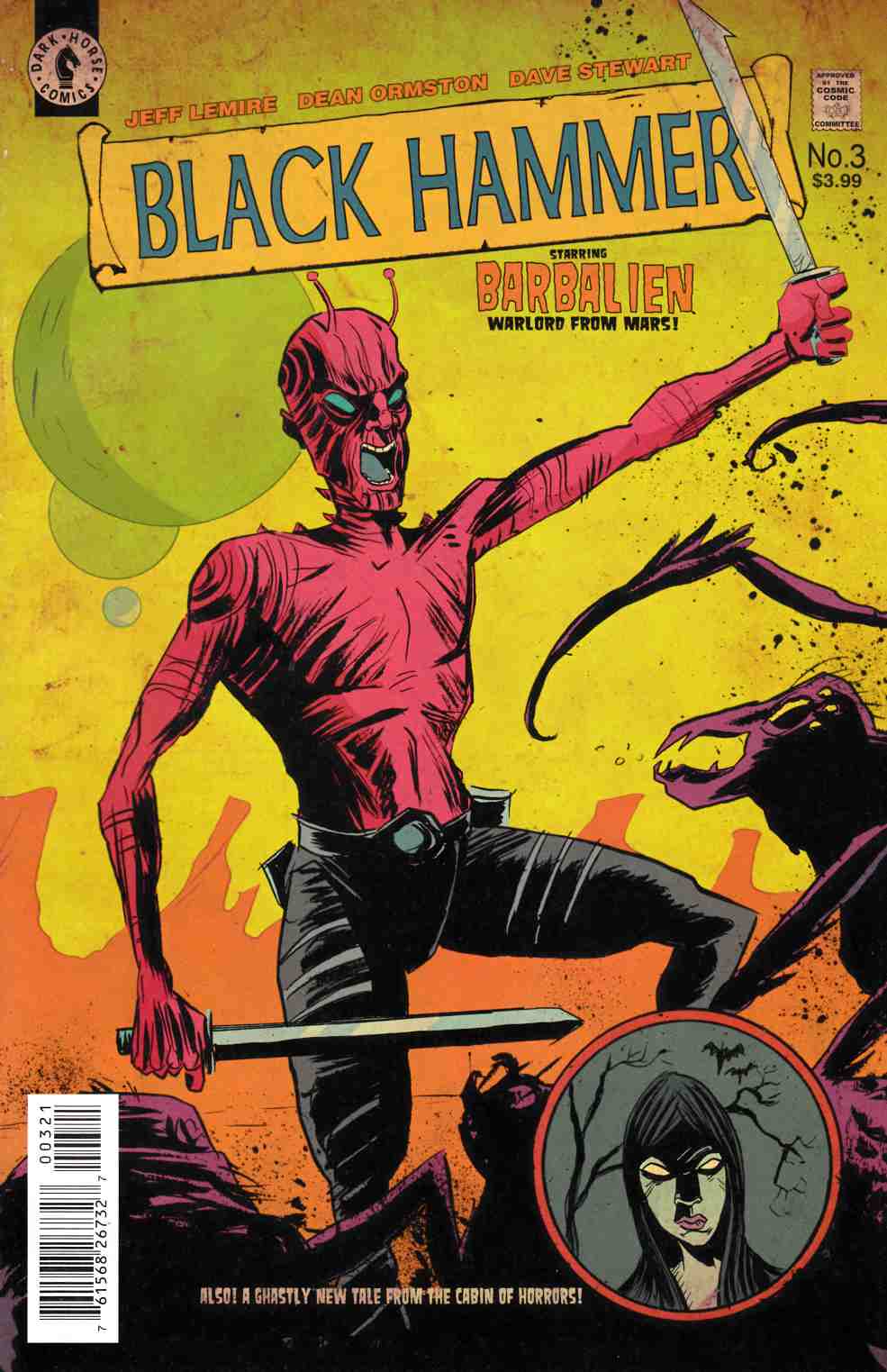
No, that was not planned. It was always just this core story of these heroes on the farm. That was Black Hammer. It’s just one of those things, like a happy accident where Dean, the artist, isn’t the fastest artist in the world. We needed a couple fill-in issues in that first run. I was like, so I don’t want to do anything with the main farm story because that’s Dean’s and he wants to do all that stuff. I had to think of something for a fill-in issue that was still set in the universe but would save the main story for Dean.
So I did it. David Rubin who is awesome came on. The first one we did was a Talkie Walkie origin story. Then we did one with Lucy and her father, and this idea of all the villians came out of that story, and then it just sort of snowballed. Once that was successful, then it just opened the door. I can do all kinds of things in this world and keep expanding. It wasn’t planned, but I’m so happy it happened. Any kind of superhero story I’ve ever wanted to do, I can now do on my own terms, in my own way. It’s pretty great.
It’s all on the board now…
Yeah, and it’s kind of limitless. You look at the whole history superhero comics. There’s 80-plus years of superhero comics I can look back at now to find inspiration for new stories. The key is trying to find something that makes them Black Hammer, that puts a twist that makes it feel like it’s part of Black Hammer, and it’s not just a generic superhero story. That’s the challenge. You don’t want to just do too much stuff and it starts to feel like it’s not Black Hammer anymore. It’s a good challenge.
One of the other things I like about Black Hammer is that it’s clearly an homage. There’s a lot of love to it, but there’s also sadness, mixed with nostalgia…are you consciously aware of that as you’re writing it?
Well, I’m not a very intellectual writer. When I do a story, I don’t go into any story thinking, this story is going to be about this, and these are the themes. I don’t think anything through like that. I just start writing something and it just happens. But you start to become aware of a tone and a feeling, and it starts working, so you go with it. All my work has a melancholy and a sadness.
This story, it’s about identiy really, it’s about these people who are superheroes, and then they had a secret identity, but now they’ve been put into a place where those identities aren’t relevant anymore. They can’t use their powers, they can’t be their super selves, and whatever secret identities they had back in the real world aren’t relevant anymore. So, it puts a mirror in front of them. Who are we if we’re not these superheroes. They just become real people, and then with all real people, there’s happiness, there’s fun stuff, but there’s also sadness. There’s everything.
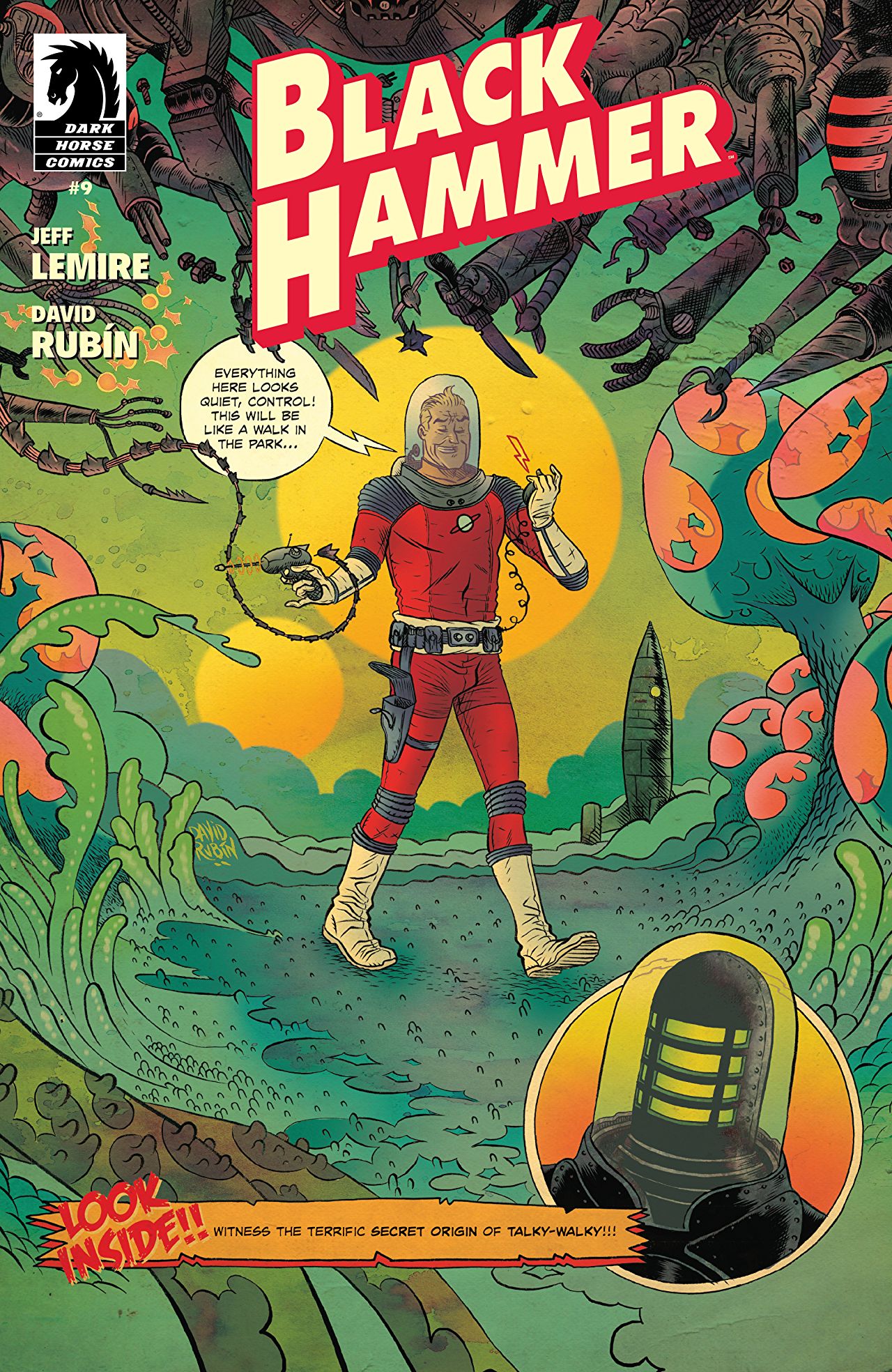
Yeah, they’re trying to figure out who they are. Who am I when I can’t be Golden Gail anymore. Who am I when I can’t use my powers. Barbalien is a great example. His power himself is becoming different people, shapeshifting. In his case he’s starting to finally become who he’s always wanted to be and coming out with his sexuality. Each character has sort of a different way to go with it. Once you go down those tracks, it all starts to become about those characters and their struggles. Of course there will be sadness in that as well.
Can you see the end of Black Hammer yet, and can you say anything about the scope of it and how long you see it extending?
Well, I’ve always known the ending of the main story. I’ve had the ending for a long time. I wrote it two years ago actually. I was so far ahead of Dean. That main story on the farm has an ending, and it has an arc, and it will finish. The good thing with all the spinoffs and things, I’ve been finding new ways to keep going in the universe with some of the characters afterward and stuff. I don’t see an ending to that, but the main story will have a finite ending.
With Gideon Falls, that seemed to me like one of the most fully-formed new comics to come out in a pretty long time, and I know you’ve said it uses characters you created when you first started cartooning. What has it been like to get back into old ideas like that, has it taken any adjustment.
That’s a weird genesis, too. There’s no plan to it. When I was 20 years old, I was in film school in Toronto in 1996. The first sort of film I made had the Norton character in it, so I’ve had that character since then. Then when I got out of film school in ’99 or something, I started to really focus on comics and move away from movies. The first comic I tried doing on my own was with that character, that Norton character.
It’s evolved a lot since then, but I think the reason it feels so fully formed is because I’ve literally been working on it in various stages for 20-plus years, before I ever started writing the scripts for Andrea (Sorrentino). I just burned out on it after so many years of trying to make this comic, and I didn’t really know what I was doing. I was new to it. I put it aside and thought I would never do anything with it again. Then a few years ago I started coming up with a different idea that had the Black Barn it, and had the priest character. It was not related to the Norton stuff or any of those old stories at all, and I don’t know when or how, but somehow the idea of putting those two disparate ideas together popped in my head. As soon as I did that, everything that wasn’t working with both stories started to click.
Around the same time, Andrea wanted to do a creator-owned book. His storytelling and his drawing style has a darker sensibility, and I knew that would be perfect for this. Everything just kind of clicked. I never actually thought I’d go back to that story, but it all sort of came together at the right time. By the time I actually started writing scripts it was something I’d been thinking of for 20 years, and also Andrea and I started working together in 2012 on Green Arrow. So, you get six years of solid work with someone. We’ve learned how to play to each other strengths and we have a chemistry now, so that was also fully-formed. I think all these things make it feel like these things were well thought out.
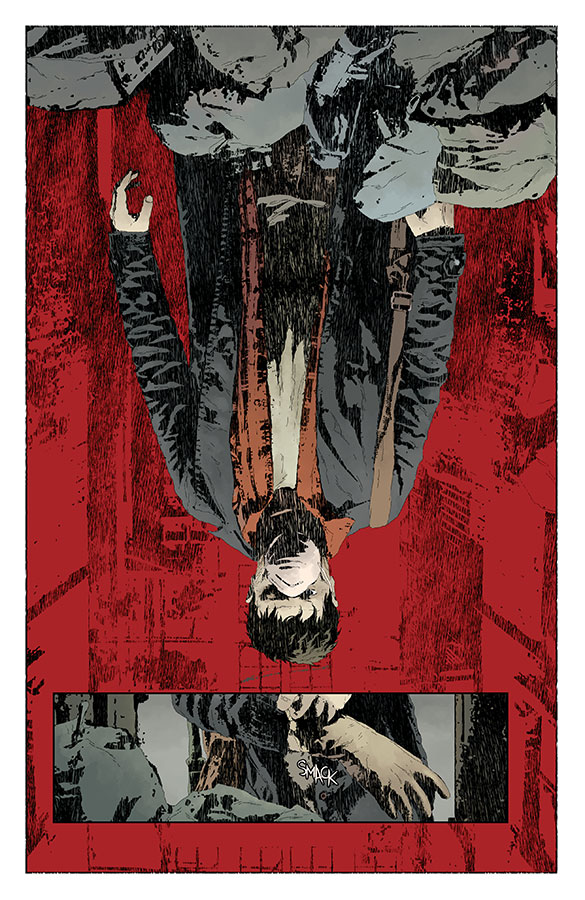
His artwork scares me, and it’s your idea but you haven’t seen what’s in his head, obviously. Does it ever have that effect on you, too?
I never get scared, but I get blown away—every time. The main ideas are all in the script, but the visual aspects are all him and I think they’re really opened. He’ll give back these crazy layouts and spreads and stuff that I never could have imagined when I was writing. Then I’ll see those, and it starts getting me fired up for new ideas. It’s a real back and forth, and it’s a lot of fun. I don’t get that with a lot of my other artists, where I get really surprised by the way they render the idea, where it’s completely surprising every time.



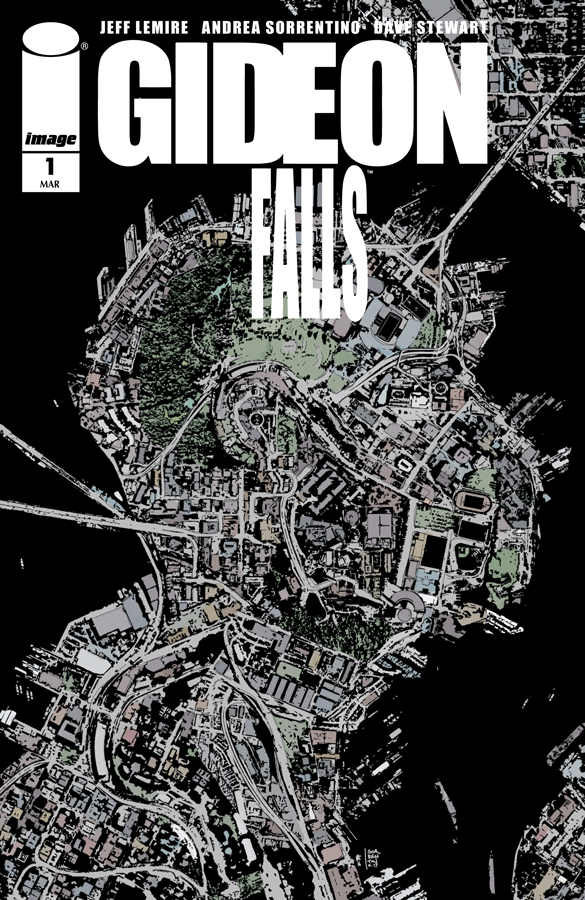
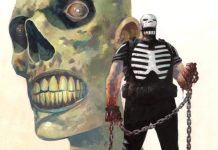
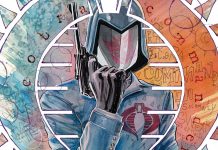



Comments are closed.